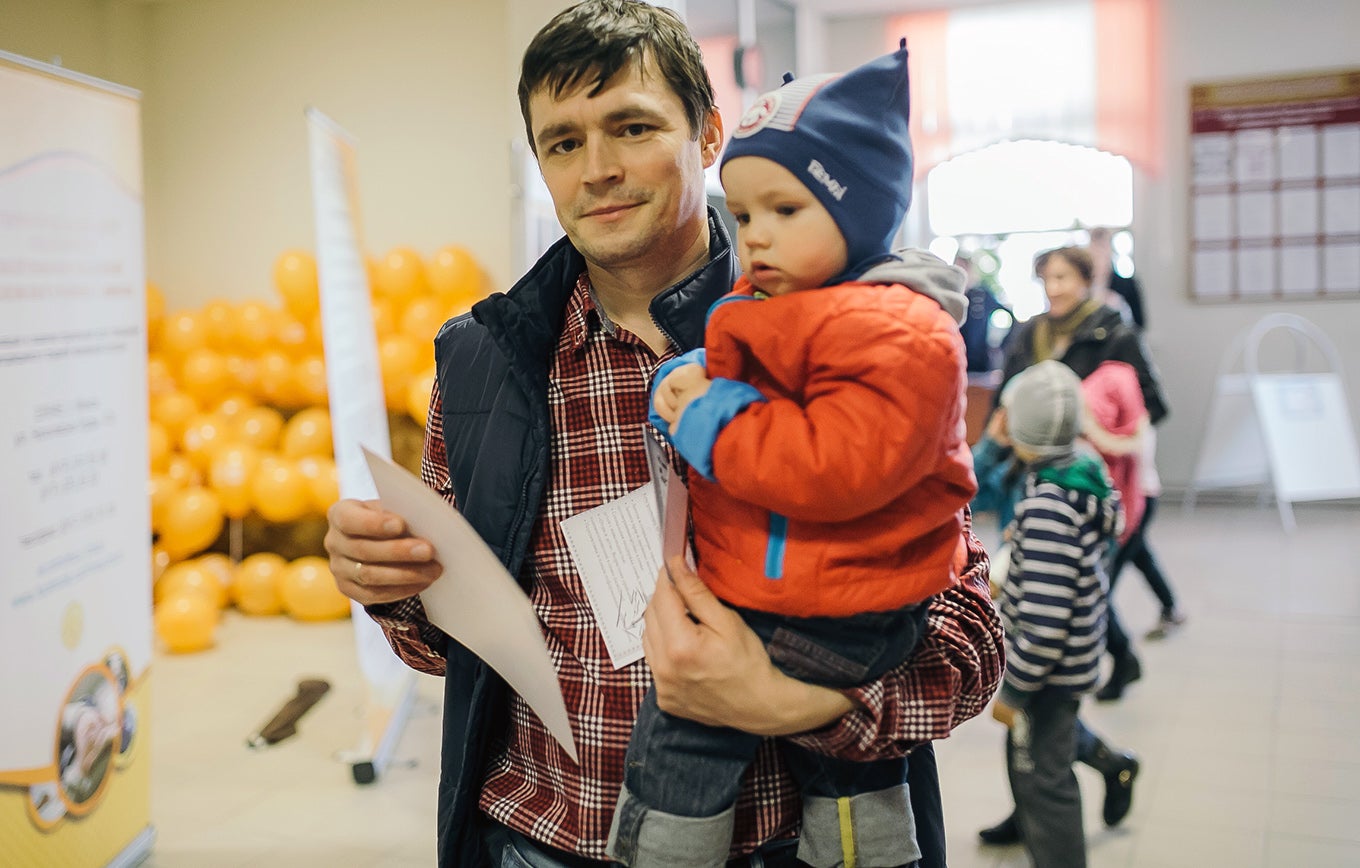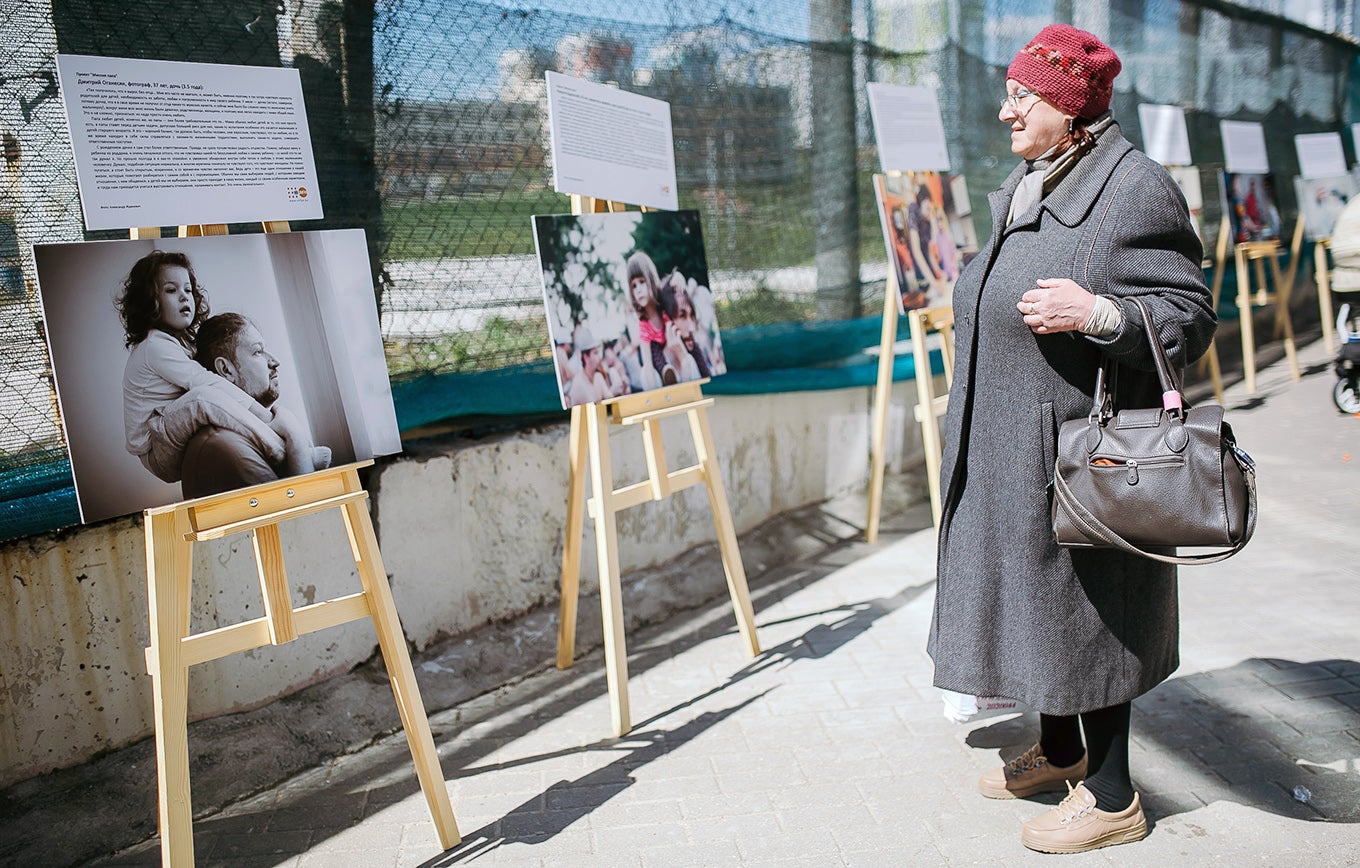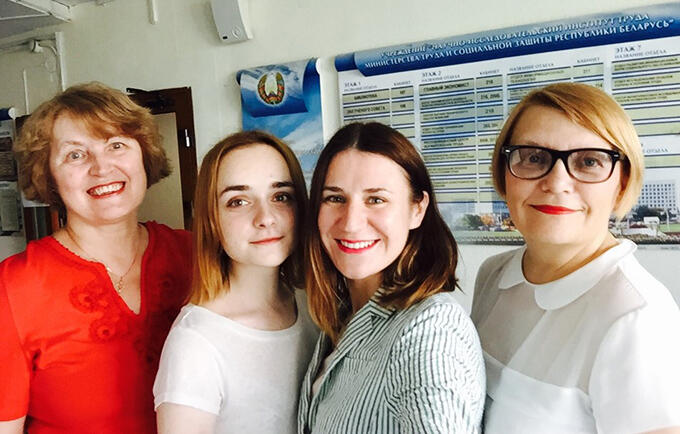MINSK, Belarus — Efforts are underway to strengthen parental leave policies, protect the rights of older persons and institute other evidence-based population policies in Belarus thanks to recommendations developed with support from UNFPA and funding from the Russian Federation.
Much of this work is being carried out by the Centre for Social and Demographic Research, which was founded in 2014 under the Ministry of Labour and Social Protection’s Research Institute.
“When we started out, we did not have much experience in demographic research, so the training opportunities provided by UNFPA and the Government of the Russian Federation were very timely and much-needed,” says centre director Natalia Krasovskaya. “Today we apply the most advanced methods and can use the latest scientific achievements in our research. We have drawn not only knowledge, but also inspiration for our work from these opportunities.”
Staff from the centre have participated in seminars, trainings, master classes and study tours in Canada, Russia and other European countries as part of the 30-month project aimed at supporting the implementation of Belarus’ national demographic security programme, which has been co-funded since June 2015 by the Russian Federation, UNFPA and UNICEF. Key ministries as well as leading scientific and educational institutions of the Russian Federation are also making available their expertise and knowledge on population policy development.

Belarus has set up an interdepartmental governmental working group to address the issue of paternal leave following recommendations made by the UNFPA-supported Centre for Social and Demographic Research. Photo: UNFPA Belarus
The project aims to improve demography education, including refresher training for civil servants in Belarus; to build capacity in the government for collecting and analysing demographic data and developing evidence-based population policies; and to improve monitoring and evaluation methodologies for the National Programme on Demographic Security.
It will also allow Belarus to conduct a first wave of an important sociological survey following the international methodology developed under the UNECE’s Generations and Gender Programme. The survey will analyse the process and tendencies of family formation, and family relationships and fertility in changing socioeconomic conditions. The results of the survey will provide evidence for future social policies and implementation measures.
Smart demographic policy is fundamental to a country’s well-being. —Natalia Krasovskaya, Belarus Centre for Social and Demographic Research

Demographic security requires population policies that secure the rights and health of people of all ages. Photo: UNFPA Belarus
In addition to bringing together an international community of experts, the UNFPA-supported project has contributed to the improvement of the curriculum at Belarusian universities in the field of demography, and to the awareness of the general public of the importance of demography and evidence-based population policies, with dozens of journalists now able to cover these topics more clearly and accurately.
Belarusian specialists have become familiarized with modern approaches to demography policies through training courses on demography and development conducted by the National Research University’s Higher School of Economics. They also travelled to the Russian Presidential Academy of National Economy and Public Administration to study the experiences of the Russian Federation in the field of demography policies, and participated in a seminar in Minsk led by Irina Kolobikhina, a recognized Russian expert in the field. Drawing on the results of the seminar and on consultations with representatives of government authorities, recommendations on various aspects of population-related policies have been prepared for the Ministry of Labour and Social Protection of the Republic of Belarus.
“Many of our recommendations have formed the basis for policy documents and legislation in the social sphere,” says Krasovskaya of the Centre for Social and Demographic Research. “We are glad that the government uses our findings this way, because we are convinced that a smart demographic policy is fundamental to the well-being of a country’s citizens.”





